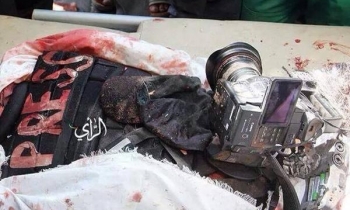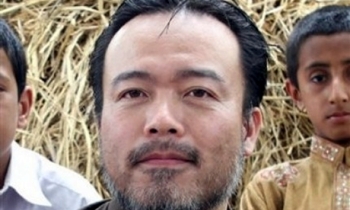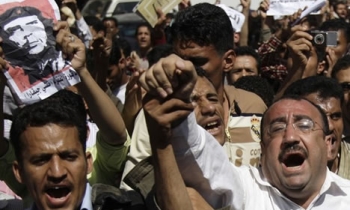The nearly eight-year-old Shivani Bhatnagar murder trial entered a crucial phase last week with the prosecution starting its final arguments, says a report in the Times of India. This phase of the trial is the penultimate step before a verdict is delivered in the case that involves suspended IPS officer R K Sharma and five others as accused.
Shivani, a print journalist, was strangled and murdered in her apartment in east Delhi on January 23, 1999.
Details in full:
In order to prove its case, the prosecution has examined 209 witnesses in the 1999 murder case, out of which 51 have been declared hostile. Before the final arguments started, the main accused, Sharma, recorded his statement under Section 313 of the Criminal Procedure Code in the fast-track court of additional sessions judge Rajender Kumar.
In his defence, the suspended officer, who has been in jail after he surrendered in 2002 following a non-bailable warrant, said Shivani was a family friend, known to his wife, but denied having any affair with her. He also rebutted the prosecution charge that he had leaked some classified documents to Shivani which the latter allegedly threatened to go public with. The prosecution has alleged that the fear of being exposed made Sharma — then posted as an Officer on Special Duty (OSD) in the Prime Minister’s Office — order her elimination.
Sharma has also denied knowing the other five co-accused in the case — Pradeep Sharma, Satya Prakash, Ved Prakash Sharma, Ved alias Kalu and Sri Bhagwan.
While Sri Bhagwan was the first one to be arrested on July 23, 2002, from the capital, computer engineer Pradeep was picked up on August 2 while on August 17, the third accused, Satyaprakash, was apprehended. Prime accused R K Sharma surrendered before a local court on September 27 the same year after his anticipatory bail was rejected by Delhi High Court.
The prosecution alleges Sharma conspired to kill Shivani on January 23, 1999, to retrieve the documents that were in her possession. The chargesheet, filed in November 2002, said Sharma ordered elimination of Shivani when he felt “threatened about his exposure over alleged leakage of some sensitive documents†relating to national security given to her. Sharma, during his stint as Officer on Special Duty (OSD) in the Prime Minister’s Office in 1997, had access to top classified documents which he leaked to Shivani, says the prosecution.
In support of its case, the police has cited recovery of an electric wire, handwriting of co-accused Pradip Sharma found in the entry register of Navkunj Apartments, recovery of his fingerprints from the scene of the crime and presence of R K Sharma at Ashoka Hotel on a specific date as key evidences which link the accused to the murder. The details of the alleged telephone calls between Shivani and Sharma have also been cited as crucial material evidence.
The police allege the conspiracy to eliminate Shivani was hatched sometime between December 1998 and May 1999 in Delhi, Gurgaon, Mumbai and Pune. On December 24, 1998, Sharma allegedly met co-accused Satya Prakash, Sri Bhagwan, Ved Prakash Sharma and Ved alias Kalu at Ashoka Hotel in the capital and informed them about his plan. Next, Satya Prakash lured Pradeep with the promise to get him back his job in the Haryana Urban Development Corporation (HUDA) besides offering him Rs 3 lakh, alleges the prosecution.The 25-page chargesheet claims that on January 13, 1999, Sharma called Shivani to Ashoka Hotel on some pretext so that the hired killers could get a good look at the victim. Later the accused also did a recce of Navkunj Apartments in East Delhi. On the fateful day, Shivani was strangled with a wire and murdered after which, the prosecution says, Satya Prakash, Sri Bhagwan and Ved Sharma landed up in Mumbai on January 24 where Sharma was waiting. He rewarded them with with Rs 3 lakh.
Says Manisha Sharma, who is assisting the special public prosecutor in the case: “We have been able to prove R K Sharma’s association with the crime and his motive.†The prosecution has maintained that oral, documentary, circumstantial and technical evidence collected during the investigations prove Sharma wanted to do away with Shivani fearing she would “spoil his career, social status and married life and also expose his involvement.â€
Last year, the prosecution got a boost when the Supreme Court set aside a Delhi High Court order giving Sharma access to the case diaries prepared by the prosecution in which statements of Shivani’s husband, Rakesh Bhatnager, were recorded by the police. Sharma had sought a copy of the case diaries on the plea that these contained crucial information for him to defend himself. But the prosecution resisted, saying case diaries formed the core of its case and should not be handed over to Sharma.
However, according to one of the defence counsel, D B Goswami, the accused have not been “conclusively linked†to the conspiracy. “This is a blind murder case with no eyewitnesses. So, every link in the chain of evidence must be complete, something which the prosecution has miserably failed to do. The handwriting on the register is of Pradip Sharma but the register has been tampered with to favour the prosecution’s case. Similarly, the police has bungled in the recovery of the electric wire. Many of their crucial witnesses have turned hostile,†Goswami claimed.
All the accused have been charged under Section 302 (murder), 120 B (conspiracy), 201 (causing disappearance of evidence) and 403 and 404 (dishonest misappropriation of property). Pradeep, who allegedly strangled the victim and inflicted 10 stab wounds, was additionally charged with “misappropriation†as he allegedly decamped with Shivani’s gold chain and a camera after the murder.









